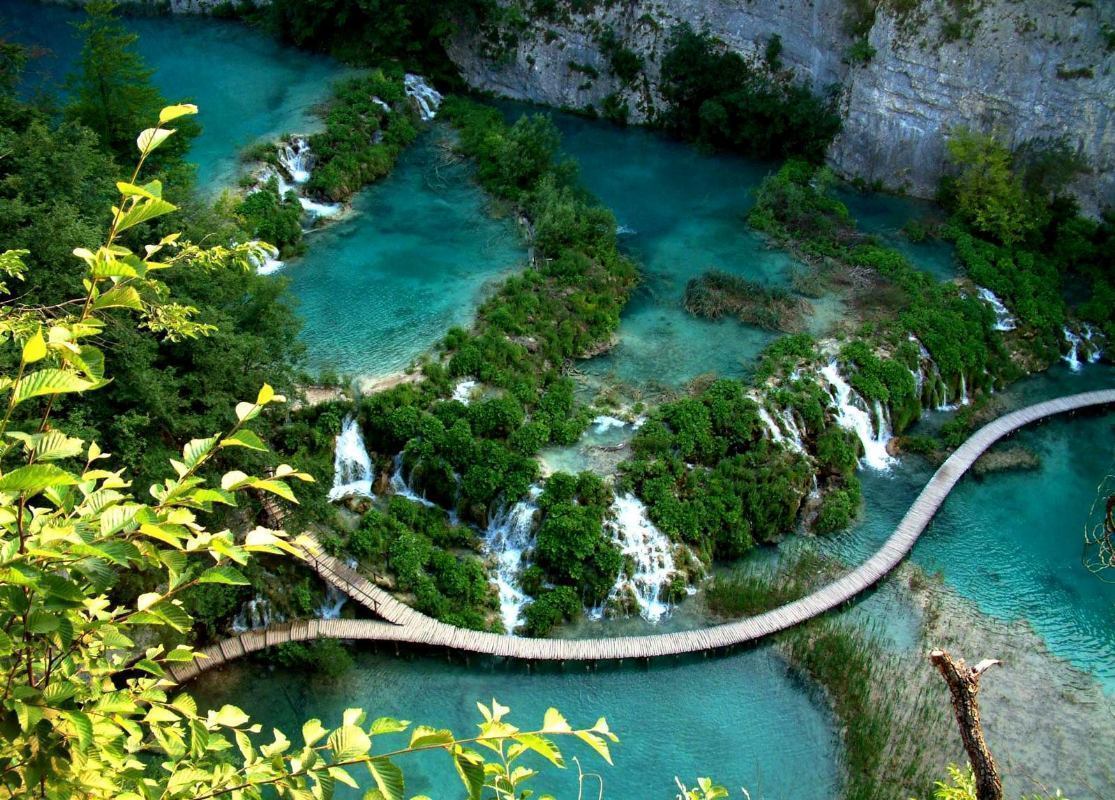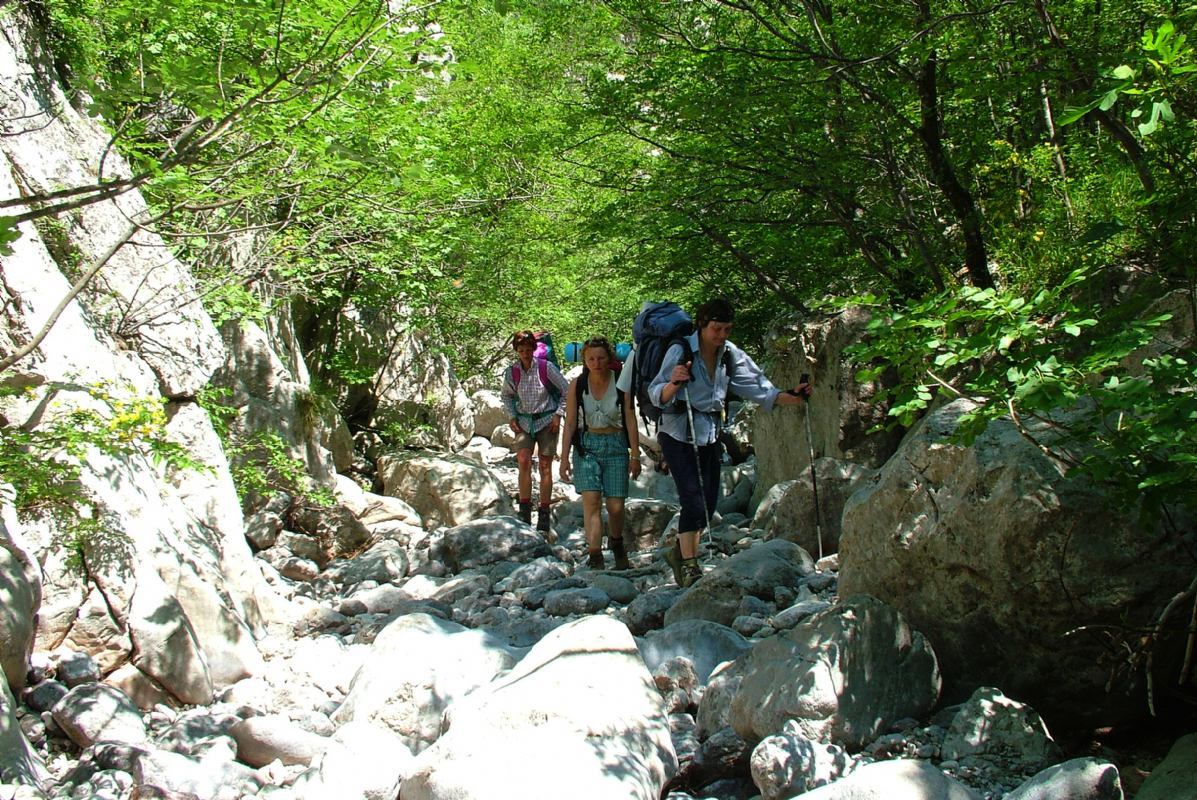Hiking through Croatia's national parks

HIKING
THROUGH CROATIA'S NATIONAL PARKS
APRIL 2016
7 DAYS – PACKAGE PRICE INCLUDES:
• Welcome drink upon arrival
• 2 x half board (breakfast and dinner a buffet)
at GH Adriatic 3* Opatija
• 1 x half board (buffet breakfast and menu
dinner) at 3* hotel in National Park Plitvice Lakes area
• 3 x half board (breakfast and dinner a buffet)
at Hotel Pinija 4* Zadar
• Use of indoor pool in Opatija and Zadar
• English speaking tour guide / hiking guide for
the whole time of the 7 day of the all-inclusive package, all tours from and to
the hotel
• Entrance fee to the NP Risnjak
• Entrance fee to the NP Plitvice Lakes
• Entrance fee to the NP Krka
• Entrance fee to the NP Paklenica
The program HIKING THROUGH CROATIA’S NATIONAL PARKS can
be well combined as a bus tour + hiking trip. Ask for our
offer!
PROGRAM:
Day
1: Arrival / Welcome drink
Day
2: Excursion to NATIONAL PARK RISNJAK
Day
3: Excursion to NATIONAL PARK PLITVICE LAKES
/ accommodation at the National Park Plitvice Lakes
Day
4: Plitvice Lakes – Zadar , sightseeing and accommodation in Zadar
Day 5: Excursion NATIONAL PARK PAKLENICA
Day
6: Excursion NATIONAL PARK KRKA WATERFALLS
Day
7: Homeward journey.
National Park Plitvice Lakes is the most famous and most visited National Park in
Croatia.
It is the only Natural Heritage site in Croatia that is also included
on the UNESCO World Heritage List.
It became part of the UNESCO World Heritage
in 1979, and so became one of the first sites to be on that list.
National Park Krka became a National Park in 1985, and it is therefore the seventh national park
in Croatia.
It is located on the territory of Šibenik-Knin County, and it
includes an area of 109 km2 along the Krka River: two kilometres downriver from
Knin to Skradin and the lower reaches of the river Čikola.
The Krka springs at
the foot of the Dinara mountain range in Knin; including the estuary it is
about 72 km long.
The total area of its drainage basin is 2,088 km2. The mean
annual flow over the waterfall of Skradin is 55 m3 / s, while, during heavy
rainfall in the hinterland, it raises over 350 m3 / s.
The Krka River is, with
its seven waterfalls formed by limestone: Bilušića buk (22.4 m), Corica buk or
Brljan (15.5 m), Manojlovački Slapovi (a series of waterfalls with a total
height of 59.6 m and the main stage of 32 m), Rošnjak (8.4 m), Miljacka slap
(23.8 m), Roški (25.5 m) and Skradinski buk (17 steps with an overall height of
45.7 m) and a total drop of 242 m a natural and karstic phenomenon.
The
limestone, deposited by the water, forms thresholds, ceilings, beards, curtains
and other geomorphology forms and thereby produces the phenomenon and
structure of today’s hydro-geological landscape of the National Park Krka.
National
Park Risnjak became a National
Park in 1953 was and includes numerous hills, with Veliki Risnjak at 1528 m
above sea level as the highest peak.
The area offers many natural sites and
attractions as the mountain ridge with typical characteristics of the Dinar
Mountains and beautiful viewpoints with more than 30 specific plant species.
For hiking, the trail Lesko is recommended; it is approximately 4 km long and
you can visit 16 different natural and cultural phenomena: a basin, the spring, and beech and fir forest.
Or combine several peaks: Platak (also known as a small
skiing area, with views of the sea) - Snježnik-Lazac-Risnjak (difficult).National
Park Paklenica became National Park
in in 1949 and is located in the mountain area VELEBIT.
Velebit is a protected
nature park within which are two National Parks: National Park North Velebit
and National Park Paklenica.
The Canyons "Mala Paklenica” and "Velika
Paklenica” delight every guest.
The highest peaks are Vaganski Vrh 1757 and Sveto Brdo
1,753 m above sea level.
There are also numerous caves in the National Park
Paklenica, the largest being "Manita pec”.
Difficulty: difficult and very
difficult.
.jpg)
.jpg)
.jpg)
.jpg)
.jpg)
.jpg)

.jpg)
.jpg)
.jpg)
.jpg)
.jpg)
.jpg)
.jpg)
.jpg)
.jpg)
.jpg)